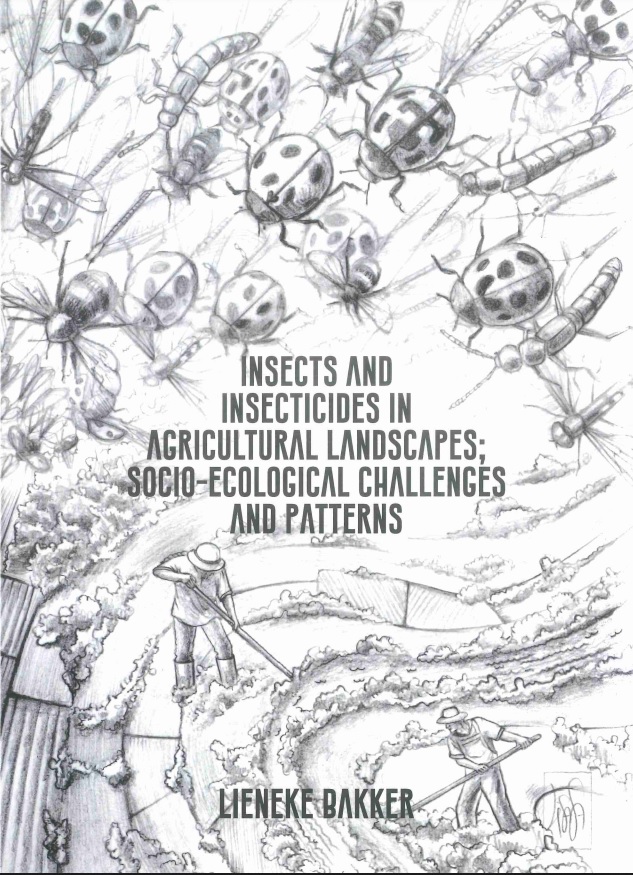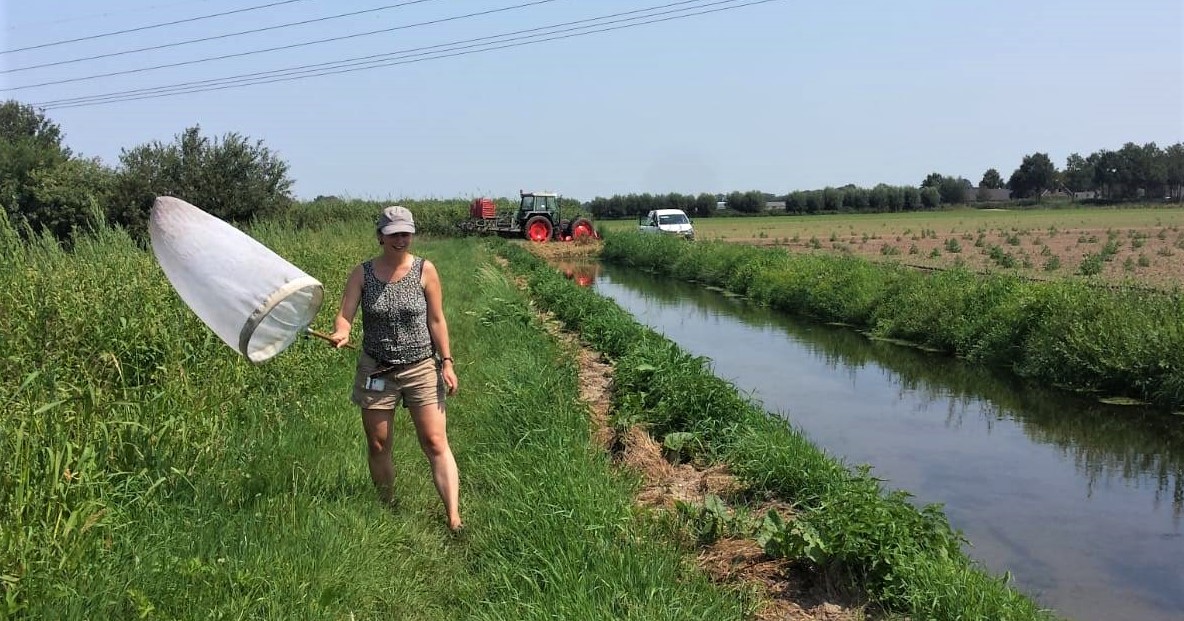Lieneke Bakker poses this position in her dissertation on the use of pesticides on Dutch farms. She recently obtained her PhD on this subject. Farmers are willing, says Bakker. ‘They certainly want to reduce the use of chemicals, but they are unable to do so or need support from others.’
Knowledge hiatus
This conclusion is based on an extensive survey among farmers, which investigates what prevents farmers from using fewer insecticides. ‘Farmers feel they lack the knowledge needed to switch to alternatives. There is a hiatus in knowledge. Moreover, they are influenced by the neighbours’ approach. They look to one another.’
Farmers want to see examples proving that good yields are still achieved with fewer insecticides
Lieneke Bakker, researcher Animal Production Systems
Farmers are caught in a cycle of pesticide use, from which it is difficult to break free, according to Bakker. Collaboration is essential in prompting change. Moreover, she calls for a reintroduction of independent agricultural communications. ‘This was formerly available but has been stopped for financial reasons. Farmers want to see examples proving that good yields are still achieved with fewer insecticides.’

That collaboration is essential is also supported by an extensive field study conducted by Bakker. She mapped the effects of insecticide use on 38 areas in the country by monitoring insects in the margins of fields of both organically and traditionally managed plots, with a focus on the natural enemies of plague insects and pollinators.
Twenty-five per cent fewer insects
Bakker discovered a significant link between the estimated use of insecticides in the area (a one-kilometre radius) surrounding the margin and the number of insects. Liberal use of insecticides reduces the number of insects by one quarter. However, whether the margin is adjacent to a traditionally or organically cultivated field is irrelevant. Although these results may appear apposed, Bakker says this is not the case.
‘The use of insecticides influences the entire landscape’, Bakker states. ‘The negative effect is not limited to the field where the chemicals are applied, but encompasses the surrounding areas as well.’ Thus, an “organic” field edge is also impacted by the use of insecticides in the area. Bakker: ‘The choices individual farmers make influence others as well. To achieve real change, a collective approach to the search for solutions is critical.’

 Lieneke Bakker catches insects along a field. Photo: Francine Pacilly
Lieneke Bakker catches insects along a field. Photo: Francine Pacilly